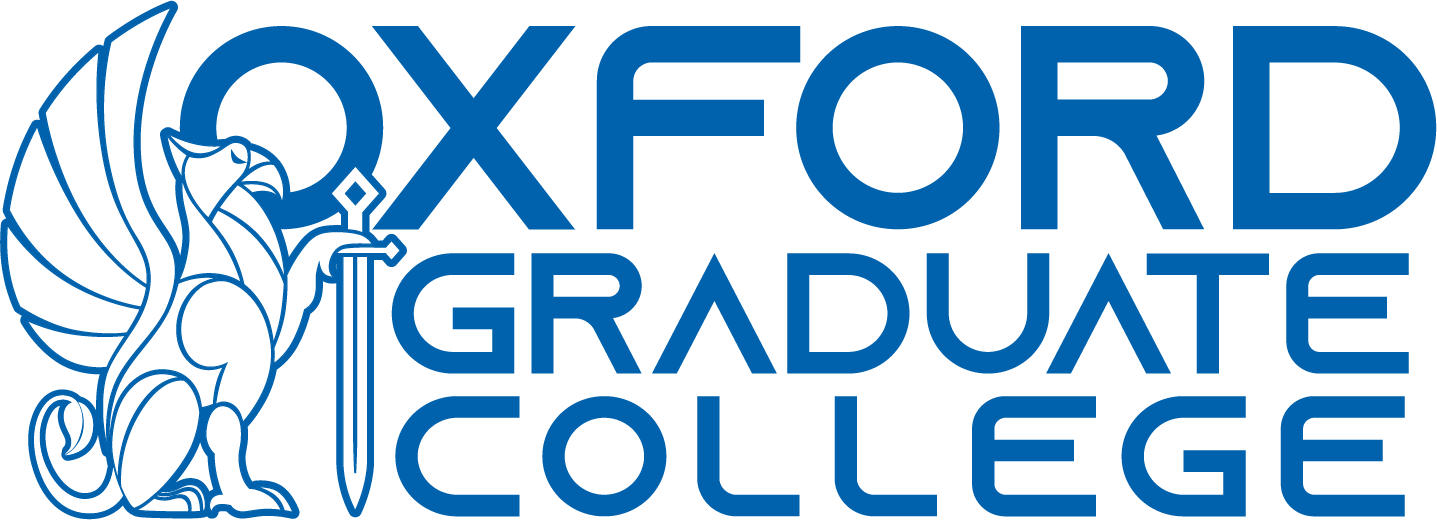
PROGRAMME SPECIFICATION
NAME OF PROGRAMME:
GRADUATE DIPLOMA- HUMAN RESOURCE MANAGEMENT
Philosophy
The Graduate Diploma Level 6 Human Resource Management aims to explore the factors contributing to business success, particularly the role of human resource management. Emphasis is placed on the applications of models and techniques necessary to achieve superior performance in organizations. The programme develops skills in analysis and planning, and develops the ability to solve business and management problems. Human Resource Management is viewed as a strategic activity which relates the management of human resources (people) to the delivery of organizational or business objectives in a strategic, integrated and coherent way. It is concerned with the establishment and delivery of integrated people management policies which support organizational strategy and ensure the delivery of successful business outcomes.
Information on Award
| Final Award | Graduate Diploma- Human Resource Management |
| Programme Title | Graduate Diploma- Human Resource Management |
| LEVEL | 6 |
| Duration of Course | Suggested Time 18 Months.
Completion time can be less. |
| Entry Requirements | Applicants must:
· Possess at minimum any related Associate Degree in the relevant field. · EDUQUAL Level 5 Diploma · RQF/QCF/NQF Level 5 Diploma · SCQF Level 8 Diploma · EQF/FHEQ Level 5 Diploma · |
| CREDITS | 180 |
| Major pathways within the course – Where course can lead to different areas of emphasis | Completion of the course can encourage participants to pursue further studies into:
· MSc in Business Management · MSc in Human Resource Management · Postgraduate Diploma in Project Management · Postgraduate Diploma in Executive Management · Postgraduate Diploma Logistics & Supply Chain Management |
| Targeted occupations for graduates | After completion of the course, graduates can serve in organizations in positions as:
· Human Resource Manager · Production Operative, Supervisor, or Manager · Business Manager · Business Analyst · Human Resource Analyst |
Programme Aims
| The main aims of the Graduate Diploma in Human Resource Management are to: | · To offer flexible delivery to meet the needs of students who are seeking to develop their career by combining academic study with their existing employment.
· Provide participants with a thorough grounding in relevant Human Resource Management disciplines. · Enable participants to reflect on and learn from their own professional experience and be able to integrate new knowledge with their experience and apply it to management situations. · To develop the power of critical enquiry, logical thought, creative imagination and independent judgement and apply these to decision-making processes within management environments. · Develop the knowledge and skills to enhance their effectiveness as managers and leaders. · Enhance the learning skills of the participants and encourage independent research, enabling participants to manage their own learning and development and become lifelong learners. |
The Learning Outcomes
| On completion of this program, participants should be able to:
|
· Demonstrate a sound foundation of knowledge about organizational psychology and human resource management in the areas studied (which may include motivation, performance, organizational change, careers, personnel selection, training, employment relations, practices in human resource management, and well-being at work).
· Design and critically evaluate qualitative and quantitative research, and carry out basic forms of descriptive and inferential statistical analysis on quantitative data. · Manage their own learning, including working effectively to deadlines, plan, organize and priorities tasks. · Define concepts properly, evaluate the evidence for propositions, identify faulty logic or reasoning and make appropriate generalizations. · Consider the views of others openly, and to be sensitive to the culture, business and management practices of others. |
Programme Structure and Requirements
| UNIT TITLE | STRATEGIC LEADERSHIP |
| TQT (Hours) | 200 |
| UNIT AIM & SUMMARY | This unit provides an in-depth understanding of the key principles and practice of leadership This will enhance the individuals’ knowledge, skills and attributes to effectively engage in the role and responsibilities required of an effective team player and leader of a team; being proactive in innovation and improvement to inform strategy and business planning within the organisation. |
–
| UNIT TITLE | STRATEGIC MANAGEMENT |
| TQT (Hours) | 200 |
| UNIT AIM & SUMMARY | The aim of this unit is to examine the process of strategic management, analyze approaches to strategy formulation and examine approaches to strategy implementation. Strategic Management is an integrative capstone unit that seeks to provide a comprehensive look at organizations. Although it will draw upon many of the business courses that you have been exposed to, it does go beyond merely tying together the various functional courses you have had. This unit will also to develop learners’ understanding of strategic and change management models, as well as the ability to review strategic plans, to propose strategic options, to create implementation plans and to lead organisational changes. |
–
| UNIT TITLE | BUSINESS LAW |
| TQT (Hours) | 200 |
| UNIT AIM & SUMMARY | Business law influences almost every aspect of corporate and working life; from protection of physical and financial wellbeing, to enforcement of rights and responsibilities within the workplace. This unit aims to provide learners with an academic and practical awareness of these laws and to develop the skills necessary to operate legally within an increasingly litigious business environment. Aim of this unit is to introduce the importance of law in businesses and organisations including main features of English Legal systems, contract laws, sales of goods acts and credit transactions as well as intellectual property law. This unit will develop analytical skills in law and encourages their application to business contexts. |
–
| UNIT TITLE | HEALTH AND SAFETY LAW, REGULATION. |
| TQT (Hours) | 200 |
| UNIT AIM & SUMMARY | The aim of this unit is to give learners an understanding of international frameworks for health and safety legislation and regulation, how these frameworks are set, and the subsequent obligations on organisations to comply. The learner will explore the role played by industry, professional bodies and media communities to influence the promotion of positive health and safety outcomes locally, nationally and globally. |
–
| UNIT TITLE | INTERNATIONAL HUMAN RESOURCE MANAGEMENT |
| TQT(Hours) | 200 |
| UNIT AIM & SUMMARY | The aim of this unit is to provide students with the context, theory and practice of international human resource management (HRM), specifically of HRM in the international arena. International Human Resource Management (IHRM) is about the worldwide management of human resources. IHRM can be traced back to the growth of international business operations and the development of multinational firms with their formal and informal approaches to personnel administration and management. The purpose of this course is to provide the students with knowledge and understanding of IHRM as well as the ability and skills to analyse IHRM in contemporary firms. |
–
| UNIT TITLE | GLOBAL RECRUITMENT, TRAINING AND DEVELOPMENT |
| TQT (Hours) | 200 |
| UNIT AIM & SUMMARY | The aim of this unit is to develop learners’ understanding of the principles and practices of resourcing, Global talent management, training and development in corporate contexts. Learners will acquire both theoretical and practical understanding of recruitment, selection, employee retention and dismissal and related aspects of Global talent management. The learners will also learn the diverse approaches to effective reward and performance management in the global context. |
–
| UNIT TITLE | CHANGE MANAGEMENT & INNOVATION |
| TQT (Hours) | 200 |
| UNIT AIM & SUMMARY | The aim of this unit is to develop learners’ understanding of classic and contemporary theories of change management, innovation and how they apply to contemporary organisations in the globalised world, with the identification and use of change models. Learners will understand the personal characteristics of change agents as well as the evaluation and development of leadership skills to meet current and future change management and innovation roles. |
–
| UNIT TITLE | PERFORMANCE, MONITORING AND EVALUATION. |
| TQT (Hours) | 200 |
| UNIT AIM & SUMMARY | The aim of this unit students will learn about the different ways that development actors can assess their interventions and follow up on the different activities of a project or program in order to become aware of its short comings and successes and to identify the extent to which development operations are achieving the results that they seek to produce. This unit will discuss the importance of monitoring and evaluation, its place within the project cycle and how different stakeholders relate to the process. It will also look at the various elements that must be considered during the project design in order to put the system in place, such as the theories of change that underpin development interventions, logical models and frameworks. It will also look at the main components of a monitoring, evaluation, accountability and learning system as well as different strategies and tools of data collection and their relevance to baseline studies, monitoring, end of project evaluations and impact assessments. It will also focus on making sense of, using and communicating the information gathered through monitoring and evaluation. |
–
| UNIT TITLE | EMPLOYMENT RELATIONS AND LEGAL FRAMEWORK |
| TQT (Hours) | 200 |
| UNIT AIM & SUMMARY | The aim of this unit is to develop learners’ understanding of the key principles that underpin Managing Employment Relations. The learners will develop understanding of employee relation & Employment Law and their purpose, specifically focusing on recruitment and selection legislation and the employment protection provided for different types of organisation. |
–
| Research Skills | Research Project |
| Description | A comprehensive research project encompassing all of the knowledge and skills gained throughout the duration of the programme. |
Information about Assessment Regulations
Participation and completion of all assessments are mandatory in order to obtain an overall final grade for the unit.
The use of any of the following Assessment Methods may be utilized in the individual assessments
- Course Assignments
- Self-study assignments
- Online Quizzes
